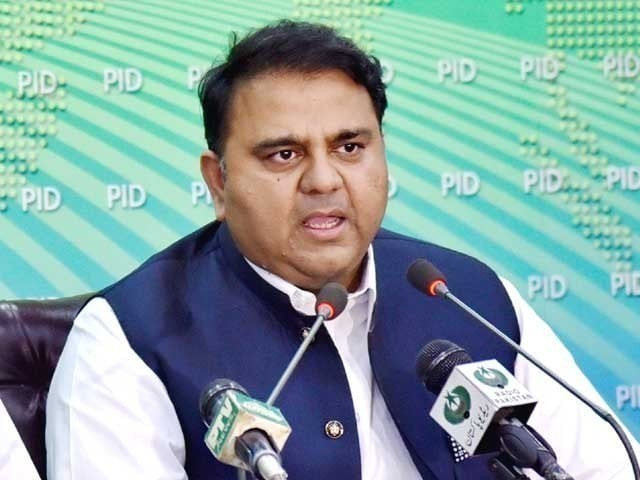Fawad against giving online voting rights to expats
Says electronic voting system is one step ahead of the present electoral system

Though the Pakistan Tehreek-e-Insaf (PTI) government has swung into action to give voting rights to overseas Pakistanis, Federal Minister for Information and Broadcasting Chaudhry Fawad Hussain has said that he is personally not in favour of giving voting right to expatriates through the internet.
The information minister while expressing that the option of the postal ballot would be safer than allowing expatriates to vote online or through the internet said it is currently being debated what would be the safest and best way through which the expats can exercise their right to franchise in the coming elections.
“Personally, I am not in favour of online or internet-based voting for the overseas Pakistanis,” Chaudhry told The Express Tribune, adding that a secure method would be adopted as the whole focus is to make the 2023 elections transparent and free from controversies.
The statement has come amid opposition parties’ fears that the biggest disadvantage of an electronic voting machine (EVM) is election hacking, saying there is a risk that the results can be altered if electronic voting is online and internet based.
Among other things, the opposition has already raised several questions, including on the mechanism to ensure the integrity of vote and how would all parties reach out to expats spread across the globe.
They have also said that the electoral reforms through the promulgation of ordinances were not viable in the long run.
To the opposition’s question how will the presiding officers and polling agents be appointed and will the voting be constituency-wise or in any other way if expats get the right to vote, Chaudhry said that overseas Pakistanis were already registered as voters in different constituencies and a proper mechanism for enabling them to vote was being envisaged.
Under electoral reforms, the government’s spokesperson said, regulations have to be changed, adding that the government's electoral reforms consist of four parts, including EVMs, e-voting for overseas Pakistanis, biometric and legislation.
Chaudhry said that the prototype of EVM has already been developed and presented to parliamentarians, adding that the President has already promulgated ordinance giving voting rights to overseas Pakistanis and enabling the Election Commission of Pakistan (ECP) to use EVMs while work was underway on biometric and e-voting systems.
To the question what would happen once the ordinances lapse, Chaudhry said that the ordinances have been promulgated so that ECP and other institutions can start working on the proposed ideas and do not come up with the excuse at a later stage that they did not have enough time to complete the job.
He was hopeful that the government would find a way to pass the bills related to giving voting rights to expats and holding elections through EVMs from parliament.
Expressing that the government is determined to bring electoral reforms, Chaudhry said the electronic voting system is one step ahead of the present electoral system and would ensure transparency in the polls.
Apart from transparency, the electronic voting system would not only ensure quick and accurate results but help ending the culture of blame game that is witnessed after every election, he said.



















COMMENTS
Comments are moderated and generally will be posted if they are on-topic and not abusive.
For more information, please see our Comments FAQ